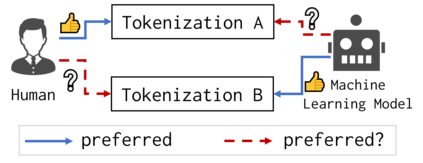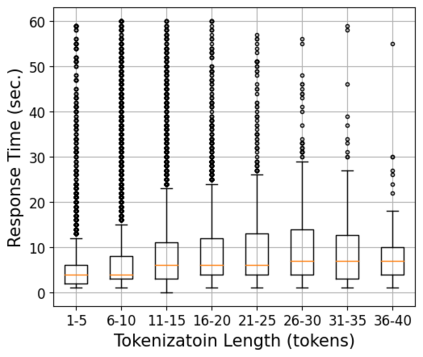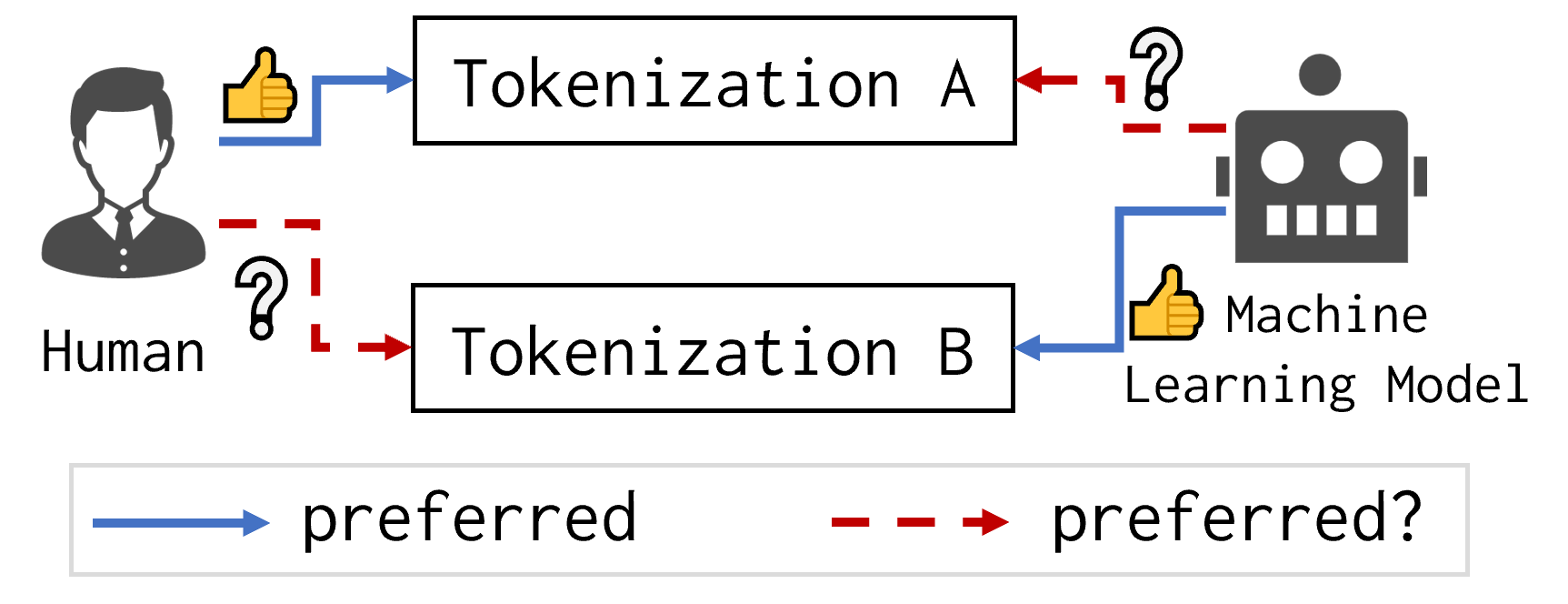Is preferred tokenization for humans also preferred for machine-learning (ML) models? This study examines the relations between preferred tokenization for humans (appropriateness and readability) and one for ML models (performance on an NLP task). The question texts of the Japanese commonsense question-answering dataset are tokenized with six different tokenizers, and the performances of human annotators and ML models were compared. Furthermore, we analyze relations among performance of answers by human and ML model, the appropriateness of tokenization for human, and response time to questions by human. This study provides a quantitative investigation result that shows that preferred tokenizations for humans and ML models are not necessarily always the same. The result also implies that existing methods using language models for tokenization could be a good compromise both for human and ML models.
翻译:暂无翻译





